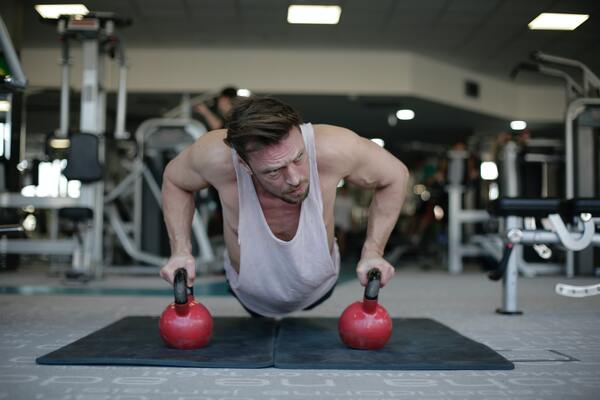Are you looking for ways to train your memory skills? We look at methods for learning how to improve your memory.

Louis Glover has over 15 years experience working as a self-improvement coach in the UK. After developing an interest in psychology, finance and healthy living, Lewis began the Good Improvements website to offer insight and advice for people searching to improve their current situations.
How do you train your memory skills?
To have a good memory, the brain should be healthy. You might be a student preparing to sit for an exam, a professional at work, or even a person who’s advanced in age and wants to ensure their memory does not fade.
People can do several things to ensure their brain functions at its highest and have a better memory.
How to improve your memory
Scientific discovery is working hard at undoing the conception that brain cannot function well at old age; brain can change and adapt in old age. This situation has been referred to as neuroplasticity.

All that is required is the correct stimulation to make fresh neural pathways, twist the connections already present, and bring about reactions and adaptations in new ways.
Keep your memory sharp at any age.
Much of what we witness as fleeting memory when one advances in age are reflections of changes to the function of the brain and its structure, all normal.
Some of the effects of these changes include slowing down some cognitive processes, hardening the process of acquiring new information, or even bringing in some distractions which can alter the learning process and memory storage.
Continue learning
When one has achieved a higher degree of education, they are most likely to have a brain that will function better in old age. Since highly educated individual has made it a habit to keep their brain active, the result is a memory that stays strong.
Make use of your senses
Research has shown that if you use more of your senses when learning new knowledge, the brain gets involved more in memory. One of these studies involved adults being shown images that were neutral in an emotional sense, but each of them was accompanied by a smell.
Think positive
Middle – or older learners have been observed to fail on tasks concerning memory retention when exposed to memory and aging stereotypes with a negative effect. However, when they receive positive memories, they have been observed to do better.
Economize your brain use
When you don’t necessarily need to occupy your mind with simple matters like where your car keys are, it will be easier for you to put your mind into learning new things that are also important and remembering them.
Use Repetition when learning
If you are dedicated to remembering something you have just read, heard, or just crossed your mind, it is helpful to write it down or even read it aloud in repetition.
Space out your learning
You must time it properly for repetition to be a great learning tool. There are better ways to go about it than repeating something several times in a short duration.
The thing to do is to re-read the essential things after periods that are increasingly longer, say once every hour, followed by once for a few hours, and then daily.
Make use of mnemonics
Mnemonics have been known to be excellent ways of keeping the memory of lists. You can form them as sentences (like the famous one, “Every good boy does fine,” used to remember the musical notations (E, G, B, D, and F).
You can find out more information related to this page about ways to train your memory skills by following the links below.
Can Memory Be Improved By Training?
What Are Five Memory Strategies?
What Is Memory Training In Psychology?
Giving your brain a memory workout
When achieving adulthood, the brain usually has come up with neural pathways in the millions that aid in your quick processing of information and remembrance, making solutions to problems that are familiar and completing tasks that are habitual while using the least effort from your brain.
However, just staying on these paths that are well known, you will not be providing your brain with the stimulation needed for its continued growth and development. You must stimulate it now and then.
What makes a good brain-boosting activity?
It should provide you with new information. Some activities might be quite intellectually demanding, but if you are well-conversed with them, there are better ways to exercise your brain.
The best activity is an exercise that is not familiar to you. Keeping your brain stronger will require that you learn new skills and develop more of them often.
It challenges your mind
Some of the activities that will best boost your brain need you to pay full attention to them. The activity presenting itself as a challenge is not enough, it must require you to use some mental effort to handle it.
They might include learning how to play a new musical instrument that is challenging to you; it does not count as a good activity if you just play a difficult piece that you have memorized.
It uses skills you can improve on.
It would help if you opted for activities that give you the room to start slow and work your way up to perfection. If a level that was difficult in the past gets comfortable, it signals you to attempt a next-level challenge.
It rewards your brain
A reward offers good support to the learning process of your brain. If you are engaged and interested more in a certain activity, the chances that you will go on doing it will be greater, and hence the benefits will be greater. That is why you should opt for challenging but satisfying and enjoyable activities.
Tips to improve your memory
The brain is magnificent in the way it reshapes itself. This is the same case when it comes to memory and learning.
It is possible to get hold of neuroplasticity and use it to improve your cognitive abilities, improve your ability to gain new knowledge, and also make your memory better, no matter the age. Use the tips below.
Include physical activities in your routine
Physical activities are a great way of making sure your memory is always sharp. The Department of Health and Human Services recommends that healthy adults should have a minimum of 150 minutes of moderate aerobic activities that are spread out throughout the week. For those with tight schedule, you should walk for at least 10 minutes daily.
Stay mentally active
Activities that stimulate your brain help in keeping it in shape, which means keeping the loss of memory far away. You can tackle crossword puzzles, take new driving routes, play bridge or even learn a new instrument.
Socialize regularly
Stress and depression can contribute to memory loss, and social interactions will help ward them off. If you reside alone, you should find time to interact with family and friends.
Get organized
When your house is organized, you will most likely remember something. You should put your tasks, appointments, and events on a calendar or notebook, paperback or digital.
While writing them down, you might speak them out loud, so they stick in your mind. Your to-do lists should always be up-to-date and remove the tasks you have completed. It would help if you also designated a place for essentials like keys.
Sleep well
Sleep is a great mode of memory consolidation. It would help if you prioritized sleeping enough, seven to nine hours daily.
Eat a healthy diet
Healthy eating is vital for your brain. You should consume fruits, whole grains, and vegetables alongside low-fat sources of proteins. Also, avoid too much alcohol and drugs.
Manage chronic conditions
You should follow the instructions when your doctor recommends treatments for such conditions as high blood pressure, depression, diabetes and high cholesterol.
Taking better care of yourself means you will likely have a better memory. You should also review your medication regularly with the doctor since some affect memory.
Learning how to train your memory skills is one of the important skills for self development. Find out about the other self development skills you can benefit from improving.

Louis Glover has over 15 years experience working as a self-improvement coach in the UK. After developing an interest in psychology, finance and healthy living, Lewis began the Good Improvements website to offer insight and advice for people searching to improve their current situations.




